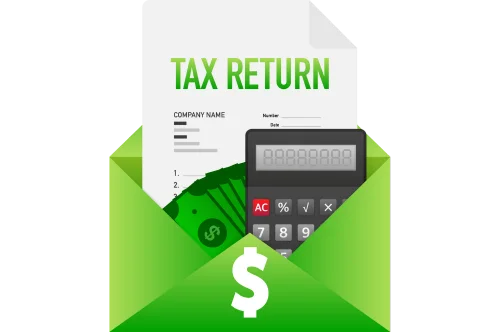E-commerce has become a booming industry, with businesses around the world benefiting from the expanding online market. However, with the increase in sales and profits, e-commerce sellers must also stay on top of their tax obligations, including filing their Income Tax Returns (ITR). Filing accurate and timely ITR for E-Commerce Sellers not only helps you stay compliant but also offers opportunities to save big on taxes by taking advantage of various tax deductions.
In this comprehensive guide, we will explore the ITR for E-Commerce Sellers, how to maximize your deductions, and the tax-saving strategies that can benefit your business.
What is ITR for E-Commerce Sellers?
Filing ITR for E-Commerce Sellers is an essential process for online businesses to report their income and expenses to the tax authorities. While the general ITR filing process is the same for most individuals and companies, e-commerce businesses may be eligible for specific deductions and exemptions that help reduce their overall taxable income.
E-commerce sellers can benefit from claiming business-related expenses, capital gains, and even deductions available under sections like 80C, 80D, and 80G of the Income Tax Act. By understanding the ITR for E-Commerce Sellers, you can take advantage of these provisions to minimize your tax liabilities.
Key Deductions Under ITR for E-Commerce Sellers
There are several deductions that e-commerce sellers can claim under ITR for E-Commerce Sellers, allowing them to reduce their taxable income. Some of the common deductions include:
-
Business Expenses:
- As an e-commerce seller, you incur various business-related expenses such as inventory purchases, shipping costs, website hosting, and digital marketing. All these expenses are deductible under ITR for E-Commerce Sellers. Make sure to keep detailed records of these expenses to claim them while filing your returns.
-
Depreciation of Assets:
- For physical assets such as computers, office equipment, or machinery, you can claim depreciation as a deduction under ITR for E-Commerce Sellers. Depreciation reduces the asset’s book value over time, and this deduction can lower your overall taxable income.
-
Interest on Loans and Borrowings:
- If you have taken any loans for business purposes, the interest paid on these loans is deductible under ITR for E-Commerce Sellers. This is particularly useful if you’ve borrowed funds to expand your business or invest in new infrastructure.
-
Employee Salaries and Wages:
- Wages paid to employees, including freelancers or contractors who help run your online store, can be deducted from your taxable income. Salaries, bonuses, and any other compensation paid to employees are eligible for deduction under ITR for E-Commerce Sellers.
-
Professional Fees and Services:
- If you’ve hired professionals such as accountants, consultants, or legal advisors, their fees are also deductible under ITR for E-Commerce Sellers. These deductions can significantly reduce your taxable income and ultimately lower the taxes you owe.
-
GST Input Tax Credit:
- E-commerce sellers can also benefit from GST-related deductions. Any GST paid on purchases or input services that are used to run your e-commerce business can be claimed as an Input Tax Credit (ITC). This is crucial when filing ITR for E-Commerce Sellers, as it reduces your GST liability and boosts your cash flow.
Maximizing Deductions Under ITR for E-Commerce Sellers
While understanding the available deductions is crucial, maximizing them is equally important. Here are some tips to help you save more when filing ITR for E-Commerce Sellers:
-
Maintain Accurate Records:
- The foundation of a successful ITR for E-Commerce Sellers lies in maintaining accurate and organized records of all your transactions. Keep track of invoices, receipts, bank statements, and any other documents that can help support your tax filings.
-
Claim All Business-Related Expenses:
- Don’t miss out on any business-related expenses, no matter how small. These expenses could range from shipping costs to software subscriptions. Be diligent and claim everything that’s eligible under ITR for E-Commerce Sellers.
-
Plan Your Investments and Expenditures:
- Timing is key when it comes to planning deductions. If you know you’ll need to purchase new equipment or make other large investments, try to do so before the end of the financial year to claim the depreciation under ITR for E-Commerce Sellers.
-
Utilize Tax-Saving Investment Plans:
- Consider investing in tax-saving schemes under sections like 80C (Provident Fund, PPF), 80D (health insurance), or 80E (education loan) to reduce your taxable income when filing ITR for E-Commerce Sellers.
-
Opt for Presumptive Taxation Scheme (Section 44AD):
- Under Section 44AD, small e-commerce businesses with a turnover of up to Rs. 2 crore can opt for the presumptive taxation scheme. This allows you to pay tax at a fixed rate of 8% of the total turnover and simplifies the ITR filing process. If applicable, this can be a great way to save on taxes under ITR for E-Commerce Sellers.
Additional Tax Deductions and Strategies in ITR for E-Commerce Sellers
E-commerce sellers can also benefit from other tax-saving strategies under the Income Tax Act:
-
Avail Section 80C Deductions:
- Section 80C offers various tax-saving investments that can reduce your taxable income. E-commerce sellers can avail themselves of deductions for:
- Life Insurance Premiums
- Employee Provident Fund (EPF) Contributions
- Public Provident Fund (PPF)
- National Savings Certificates (NSC)
The maximum deduction available under Section 80C is ₹1,50,000 per annum.
- Section 80C offers various tax-saving investments that can reduce your taxable income. E-commerce sellers can avail themselves of deductions for:
-
Take Advantage of Section 80D for Health Insurance:
- Health insurance premiums are deductible under Section 80D. E-commerce sellers can claim deductions for premiums paid on medical insurance for themselves, their spouse, children, and parents.
- Maximum Deduction: ₹25,000 for self and family; ₹50,000 for senior citizens.
-
Claim Depreciation on Assets:
- If you’ve invested in assets for your e-commerce business, you can claim depreciation to reduce your taxable income. Depreciation rates for various assets vary, with typical rates being 15% for computers and 40% for furniture and fittings.
-
Consider Setting Up a Limited Liability Partnership (LLP) or Private Limited Company:
- Switching to an LLP or Private Limited Company can help reduce your tax burden. These business structures offer better tax advantages, such as a lower corporate tax rate and additional tax-saving options.
-
GST Input Tax Credit:
- If you’re registered under GST, claiming the GST Input Tax Credit (ITC) can significantly reduce your GST liability and, in turn, your overall tax burden.
-
Invest in Retirement Plans:
- Contributions to the National Pension Scheme (NPS) are deductible under Section 80CCD. The maximum deduction for NPS contributions is ₹1,50,000, with an additional ₹50,000 under Section 80CCD(1B).
-
Normal Deductions:
- Apart from business-specific deductions, e-commerce sellers can also avail of normal deductions such as:
- Section 80E (Interest on Education Loan): Full deduction on interest paid.
- Section 80G (Donations to Charity): 50% to 100% of donations are deductible.
- Section 24(b) (Interest on Home Loan): Deduct up to ₹2,00,000.
- Apart from business-specific deductions, e-commerce sellers can also avail of normal deductions such as:
-
Pay Salary to Family Members:
- Paying a reasonable salary to family members working in your e-commerce business can help reduce your taxable income. Ensure that the salary is in line with industry standards to avoid scrutiny from tax authorities.
Avoid Common Mistakes When Filing ITR for E-Commerce Sellers
Filing ITR for E-Commerce Sellers can be complex, and it’s easy to make mistakes if you’re not careful. Some common errors to avoid include:
-
Incorrect Classification of Income:
- Ensure that you classify your income correctly, especially when you have multiple revenue streams.
-
Failure to Report All Income:
- Report all your income, including side incomes from other platforms, to avoid penalties.
-
Not Claiming Eligible Deductions:
- Don’t miss out on any business or normal deductions. Take full advantage of deductions available under ITR for E-Commerce Sellers.
-
Late Filing Penalties:
- Avoid penalties by filing your ITR on time.
Conclusion
Filing ITR for E-Commerce Sellers is crucial for managing your business’s financial health and minimizing your tax liabilities. By understanding available deductions and exemptions, you can significantly reduce your taxable income and keep more of your profits. Whether it’s claiming business expenses, interest on loans, or leveraging tax-saving options like Section 80C, 80D, and NPS, there are numerous ways to save when filing ITR for E-Commerce Sellers.
Make sure to maintain accurate records, plan your expenses, and avoid common filing mistakes to maximize your tax savings. Always consult a tax professional if you need help with the filing process. With the right approach, you can save a substantial amount in taxes and reinvest those savings back into growing your e-commerce business.
Our Tax Services

ITR Filing
ITR Filing services provide full assistance with Income Tax Return submissions, ensuring accurate and timely compliance with all tax regulations and statutory requirements for both individuals and businesses.

Tax Audit
A tax audit reviews financial records to ensure compliance with tax laws, verifying income, deductions, and expenses. It minimizes errors and helps businesses avoid penalties, ensuring accurate tax reporting.

E-Commerce Tax Services
Navigating taxes as an e-commerce seller can be challenging due to the unique complexities of online businesses. Here’s a quick overview of the essential tax services that can help simplify compliance and optimize tax savings



